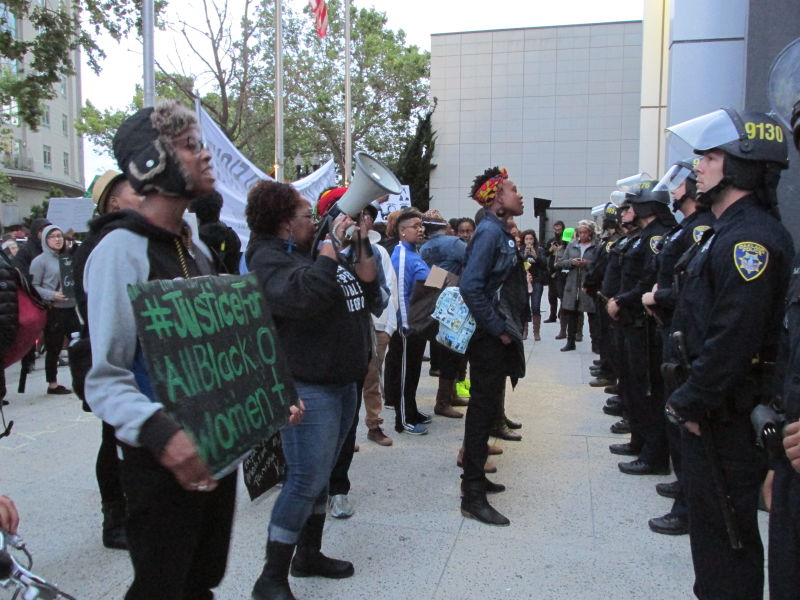“The conversation about black people and the murder of black people by police could not only be moved from the closets, the shadows of people's homes ... it could move from there out into a larger environment because of social media," she says.
The civil rights movement was incredibly organized and well structured. It was bolstered by church members and inherently driven by hierarchy and rules within the church. Today's movement is more open and inclusive. Because it was created in a social media space, its leaders don't have to "dress themselves up" for mainstream media.
Black Twitter: Where Black Voices are Heard Loud and Clear
You can't talk about race and the Internet without talking about Black Twitter, the dynamic cyberspace where black people come together to grieve, laugh, organize, support each other and live tweet.
Cyril says black people across the nation have used the architecture of Twitter -- all 140 characters -- to speak in a creative coded language that captures the humor, beauty and emotional turmoil of the black American experience.
Not to mention Twitter has spawned a myriad of hashtags that have brought attention to issues of underserved communities that people wouldn’t otherwise come across.
Net Neutrality and Mobile Devices Provide More Internet Access
Cyril attributes the current breadth of the conversation on race and cultural identity to an FCC ruling on net neutrality, which prevented Internet service and wireless providers from blocking, inhibiting or establishing fast or slow lanes to content.
A report by the Pew Research Center finds that African-American Internet use trails that of whites on traditional platforms, like desktop computers, but is equal on mobile platforms. And 40 percent of African-American Internet users from the ages of 18 to 29 say they use Twitter, compared with 28 percent of young whites.
According to the Pew report, African-Americans are less likely than whites to have high-speed broadband access at home. However, people of color tend to experience the Internet through social media apps like Twitter, Facebook and Instagram.
Cyril says the Internet offers the "best bypass to mainstream media that has ever been available.” People are able to engage and communicate in a forum for people of color, by people of color -- but these platforms are still not owned by people of color, she says.
Diversity in Tech Is a Centuries-Old Power Dynamic
Cyril says the dynamic of power that occurs between Internet users and the tech companies is a very old one.
She says the the communication platforms "that carry our message are owned by the colonizers -- are owned by the elite.” Just take a look at numbers for gender and race diversity in tech, which show white males dominating the sector's workforce and management positions, while African-American and Latino representation hovers in the low single digits.
Cyril says the low representation of females and black and Latino employees is a result of unfair hiring practices, and the diversification of these companies has implications far beyond freedom of speech.
"Our ability to survive in this country depends on us being digitally literate," she says.
Even though the Internet allows underrepresented youth to thrive, debate and engage, the primary decision-makers exist in a world that has yet to be penetrated by all people of color.

